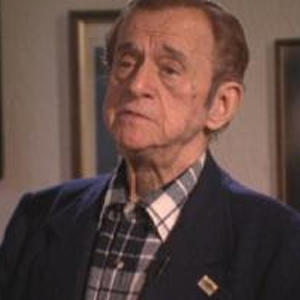David Meyerowitz (1867–1943) represents the early phases of the American Yiddish musical stage that pre-ceded the zenith of the so-called Golden Age of Second Avenue during the 1930s and 1940s. His songs and even his one-act presentations were often oriented more toward vaudeville, variety show, and revue formats.
Meyerowitz was born in Dinaburg, Latvia (then part of the czarist empire). He had no formal education, and his life as a songster and later a songwriter started as he entertained fellow workers in a match factory. When his father emi-grated to America, temporarily leaving his family behind until he could earn enough money to pay for their passage, David began earning extra income by singing songs from Goldfaden operettas, and ballads by the famous bard Eliakum Zunser, which he had learned from his mother.
In 1890, Meyerowitz came to America, but he continued at menial shop labor while he composed simple Yiddish parodies and patriotic sentiments. Representative of the latter is his early miniature, Kolombus, ikh hob tzu dir gornit (Columbus, I’ve Got Nothing Against You!), a typical humorous expression of enthusiasm for the new country (“And I have nothing against you either, America! You’re very good to us, and life here is happy; you’re ‘okay’!”). He began singing such songs at various gatherings and then for small remuneration at cafés and music halls, and soon became known as “the wandering poet.”
Among his early original songs that gained popularity were several he created for the famous Yiddish actor and pro-ducer Jacob P. Adler (1856–1926), and in 1921 Meyerowitz’s song Aheym (Go Home) was introduced by Adler at the Kessler Theater in the play The Power of Nature. Meyerow-itz, who was vocal about his Zionist sympathies, dedicated that song to the World Zionist Organization. When the most famous and powerful personality in the entire Yiddish theater world—impresario, actor, singer, and songwriter Boris Thomashevsky, often called the Father of Second Avenue Yiddish Theater—wanted a Zionist-oriented song to sing in his play Tate mame tzores (Heartbreak, Papa and Mama), he turned to Meyerowitz, who then wrote Kum, srul, kum aheym (Come, Little Srul, Come Home).
Meyerowitz’s one-act operettas, in which he sometimes played and sang while also producing and directing, grew in popularity throughout New York music halls and vaude-ville houses, playing at no fewer than all fourteen that once existed simultaneously.


12 thoughts on “Kaminos”
Was Nicholas related to Alexander Saslavsky who married Celeste Izolee Todd?
Anyone have a contact email for Yair Klinger or link to score for Ha-Bayta?
wish to have homeland concert video played on the big screen throughout North America.
can organize here in Santa Barbara California.
contacts for this needed and any ideas or suggestions welcomed.
Nat farber is my great grandpa 😊
Are there any movies or photos of max kletter? His wife’s sister was my stepmother, so I’m interested in seeing them and sharing them with his wife’s daughter.
The article says Sheb recorded his last song just 4 days before he died, but does not tell us the name of it. I be curious what it was. I’d like to hear it.
Would anyone happen to know where I can find a copy of the sheet music for a Gil Aldema Choral (SATB) arrangement for Naomi Shemer’s “Sheleg Al Iri”. (Snow on my Village)?
Joseph Smith
Kol Ram Community Choir, NYC
Shalom Joseph. I just saw your 2024 post by chance… I’m a mostly-retired Israeli journalist and translator. In 2003 I translated into English the content (the objective was to remain true to the meaning, not to cadence or rhyme) of poems and lyrics of 48 of Israel’s most iconic songs arranged by Aldema for choirs abroad singing in Hebrew (the words in the scores are transliterated) but members of the choir lack mastery of Hebrew to ‘know’ exactly what they are saying/singing… The book was titled in English “A Merry Choir” – in Hebrew מקהלה עליזה . See if you can find a copy in a used book store, it is priceless and apparently out-of-print – well worth the search. If not, they may have a copy at Tel Aviv Amenu Museum’s music department – write them and see if they can send it to you. Or – if you will contact me via Whatsapp – (972) 546872768 or via my email – I will try and find the book (it is not where it ‘should be’ so I have to search) and I will photograph the score with my cell and send to you as an attachment. Best, Daniella Ashkenazy – Kfar Warburg.
שלום שמעון!
לא שכחתי אותך. עזבתי את ישראל בפברואר 1998 כדי להביא את בני האוטיסט לקבל את העזרה המקצועית שלא הייתה קיימת אז בישראל. זה סיפור מאוד עצוב וטרגי, אבל אני הייתי היחיד עם ביצים שהביא אותו והייתי הורה יחיד בשבילו במשך חמישה חודשים. הוא היה אז בן 9. כעת הוא בן 36 ומתפקד באופן עצמאי. נתתי לו הזדמנות לעתיד נורמלי. בטח, אבות כולם חרא, אומרים הפמינציות, אבל כולם צריכים לעבוד כמטרות במטווחי רובה!
משה קונג
(Maurice King)
Thank you for this wonderful remembrance of Herman Zalis. My late father, Henry Wahrman, was one of his students. Note the correct spelling of his name for future reference. Thank you again for sharing this.
Tirza Wahrman (Mitlak)
amazing zchuso yagein aleinu, he wrote the famous niggun Lefichuch that is sung in almost every Israeli Yeshiva
My grandmother, Rose Ziperson, wrote the words to his music for a song called Main Shtetele, which he produced. I have the sheet music!